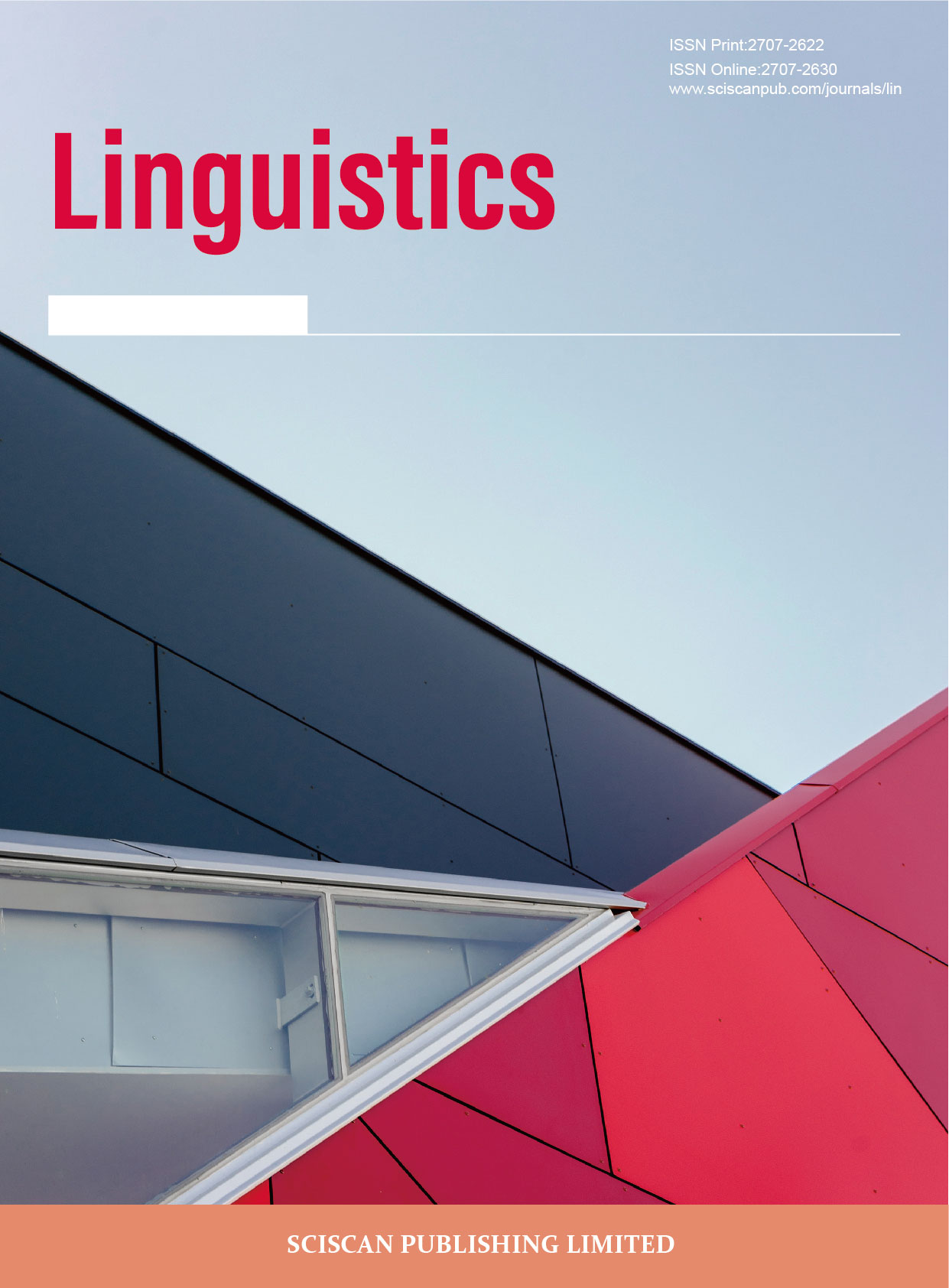以修德获至幸福:以《尼各马可伦理学》和《论语》为主要考察对象
Virtue Cultivation Inspired Happiness: The Nicomachean Ethics and the Analects in Focus
- Authors: 龙爱仁
-
Information:
浙江外国语学院,杭州
-
Keywords:
Nicomachean Ethics; The Analects; Virtuous Activity; Doctrine of the Mean; Happiness《尼各马可伦理学》; 《论语》; 德性活动; 中庸; 幸福
- Abstract: The questions of what constitute virtue and its contribution to happiness are fundamental to mankind. The Nicomachean Ethics as well as the Analects, respectively, explore this profound relationship. In Aristotle’s view, the ultimate function of man is to attain a state of “eudemonia”, which is to be achieved by sustained virtuous activity of the soul. In contrast, the Analects makes no mention of the character “Fu”(happiness). Moreover, Confucius’ recognition -as ultimate temporal goals- of the ethical concepts of humaneness and ritual, are unrelated to the pursuit of happiness. Nevertheless, both doctrines argue that rational and virtuous activities are the only means to realizing their respective interpretations of the golden-mean, and that adherence to them do contribute to one’s ultimate happiness. Accordingly, both works share the view that Happiness is not predetermined; rather, its attainment requires no small amount of effort. “德性”与“幸福”是人类的基本问题,《尼各马可伦理学》和《论语》分别对 二者的关系问题进行了深刻的探讨。《尼各马可伦理学》认为,人类对幸福的 追求是一切的意义所在。在亚里士多德看来,人的终极功能,就是理性灵魂的 德性活动所带来的“eudaimonia”,即幸福。《论语》中并没有提及“福”字, 而且孔子所推崇的“仁”“礼”为道德伦理规范,就是人的终极目标,与求“福” 或“快乐”无关。尽管如此,两个学说都认为,一方面用理性克服阻碍、以求 实现德性的那种活动,是一种实现“中庸”的幸福生活的手段;另一方面,该 活动本身就是一种幸福,能够产生快乐。对这两本书来说,幸福不是天然生成的, 而是反宿命的,是需要积极奋斗方能获得的。
- DOI: https://doi.org/10.35534/lin.0301013
-
Cite:
龙爱仁.以修德获至幸福:以《尼各马可伦理学》和《论语》为主要考察对象[J].语言学,2021,3(1):282-296.
“如何更好地生活?”这是数千年来中西哲学者矢志不渝探索的无上妙法。或曰:宗教也好,世俗也好,现代社会追求幸福的方式都与古老的儒家思想无关。然而,细读《论语》《中庸》,不难发现其中宣扬的各种价值,如孝、中庸、和谐、健康等等,正是现代社会以及古往今来各种文明苦苦寻求的。现代西方学者在研究幸福问题时,很少重视儒家的观念,这并非儒家思想有所欠缺,而是学者视野有所局限。
因此,本文旨在发掘儒家的“幸福思想”,并与亚里士多德的思想作比较。古汉语与古希腊语都是极其古老的语言,虽然已经经过很多流变,但笔者仍拟把重点放在对原始文本的归纳上,以便探视古代东西方人对幸福以及德性的理解,并藉此进一步考察当今中外社会的幸福观与宿命论的关系。
1 从古希腊的宿命论到反对宿命的苏格拉底与柏拉图
古希腊人十分热衷于讨论幸福问题。希罗多德《历史》中记载了吕底亚王国的国王克洛伊索斯与圣哲梭伦对“幸福”的讨论,国王认为自己拥有无限的财富与权势,于是满以为梭伦会同意自己是世间最幸福的人,梭伦却认为雅典人泰洛斯是最幸福的人:泰洛斯战死沙场,为国捐躯,获得了最高荣誉的厚葬,相比之下国王的财富不能带来幸福。
在梭伦看来,奢侈的生活只能带来局部的幸福。不仅如此,从更长远、更整体的视角来看,无论身体的健康、家庭的和睦、外在的荣誉,还是更一般的过去与当下的经历,都不过是命运的馈赠而已:
拥有巨大财富的不幸的人只在两方面优于幸福的人,但幸福的人却在许多方面都超过了前者。有钱的人便有能力来满足他的欲望,也更有能力承受大灾难的打击;后者当然不能像前者那样地满足自己的欲望并且也经不住这样的灾难,然而他的幸运却使这些灾难不会临到自己身上。此外,他还会享受到这样的一些幸福:他的身体不会残废,他不会生病,他不会遇祸,有好孩子,又总是心情愉快的。如果在这一切之外,他又得到善终的话,这便正是你所要寻求的人,也就是够得上称为幸福的人了。然而这样的人,在他死之前,应当称他为幸运的人,而不是幸福的人。[1]
因此,梭伦十分谨慎地面对着国王眼前的荣耀与权力。毕竟,国王征询梭伦的意见就意味着,只有当他人承认其财富与地位时,国王才能安然享受所谓幸福带来的快感。当然,更主要的原因在于,这些命运暂时的馈赠不能代表长久的幸福——梭伦认为,当下的快乐一方面可以成为长远快乐的一部分,另一方面同样可以转瞬间烟消云散。眼前的快乐能否长久?梭伦认为,只有当一个人死去,我们才能评价他一生是否幸福。其中的关键是涉及“幸运”与“幸福”的关系,幸运会带来幸福(好的生活),而财富这些东西是带不来的。
希罗多德的记载表明了古老的希腊人对“幸福”的看法充满分歧,国王认为幸福在权势与地位中,梭伦认为幸福是对一生权势地位与荣誉的“总结”,是命运或说“幸运”的馈赠,是“宿命”的。这种宿命论的幸福观广泛根植于一切早期文明。
然而,到了苏格拉底、柏拉图和亚里士多德的时代,哲人们已经开始系统地分析思考幸福这个问题。三位哲人之前的时代,智者们更加关注逻辑与自然科学及认识论之类的问题。相比之下,人的德性、人的生活,不过是自然科学或者神学的逻辑推演,所以他们大多以一种消极的态度对待“幸福”,认为幸福取决于“命运”。
与前人的被动、消极不同,这三位哲人面对幸福问题更加积极乐观——他们否认“幸福”是由命运决定的,同时他们否认幸福就是肉体满足或享乐。这就让“幸福”的观念高了一个层次。苏格拉底认为:“在我看来是这样的……我把那些高尚、善良的男男女女称作幸福的,把那些邪恶、卑贱的人称作不幸福的。”[2]人一旦愿意克制自己的欲望,并朝着正义的生活方向奋勇前行,就可以实现幸福。“幸福的人之所以幸福,就在于他们拥有善。我想我们没有必要再问为什么人想要幸福。”[3]幸福是人类天生所渴望的,是人类最宏伟、最崇高的需求,却也是人人力所能及的,因为他根植于人心中的善。
而在柏拉图看来,“对那有爱情的人来说,如果他们心灵中比较高尚的成分占了上风,引导他们过一种有纪律的、哲学性生活,那么他们在人世间的日子会幸福和谐,因为他们灵魂中恶的力量已被征服,而善的力量却得到解放,他们已经成了自己的主人,赢得了内心的和平。”[3]人们内心的欲望意味着潜在的邪恶,因此必须学会克服“厄洛斯”(Eros)以追求真正的善,只有这样才能达到真正的幸福境界。
所以我们可以这样总结苏格拉底和柏拉图对“幸福”的创造性阐释:他们全然否定了梭伦式的宿命论;他们全然否定了幸福等于欲望的观念,并将欲望纳入一个宏大的道德框架中;他们教诲人们,必须将对肉体与物质世界的爱转化成对智慧的爱(哲学),而把握主动权与否才是达到幸福的核心,这是幸福的基础。
2 理智与德性——亚里士多德的(非宿命)幸福观
亚里士多德继承发展了苏格拉底与柏拉图的思想,并试图把其中的理论推理系统化[4]。亚里士多德同样认为追求幸福是人类一切活动的终极目标。在他看来,人的完整无缺的终极功能,就是合乎理性灵魂的德性活动。“幸福”便是其中之一。在他众多的著作中,《尼各马可伦理学》无疑代表了关于“幸福”最成熟的思考。
《尼各马可伦理学》开篇解释道:“每种技艺与研究,同样地,人的每种实践与选择,都以某种善为目的。所以有人就说,所有事物都以善为目的。”[5](《尼各马可伦理学》1094a1)既然善是人的“目的因”,亚里士多德就此得出结论:“大多数人有一致意见。无论是一般大众,还是那些出众的人,都会说这是幸福,并且会把他理解为生活得好(to eu zēn)或做得好(eu prattein)。”[6](《尼各马可伦理学》1095a15~16)一个具有德性的人,他与生俱来的目的就是获得幸福。
在多数人看来,幸福无外乎是经济富裕、家庭和睦、获得快乐一类的事情。不同境况下具体的看法或许会有不同:重病缠身的人以健康为幸福,名誉扫地的人以声望为幸福,饥肠辘辘的人以面包为幸福,大汗淋漓的人以阴凉为幸福。亚里士多德总结道:“如果从人们所过的生活来判断他们对于善或幸福的意见,那么多数人或一般人是把快乐等同于终极善或幸福。所以他们喜欢过享乐的生活。”(《尼各马可伦理学》1095b14~18)但是,享乐充其量不过是幸福的一个环节。
暂时的快乐是达到终极善的目的,却不代表终极善本身。亚里士多德说:“所以,我们把那些始终因其自身而从不因它物而值得欲求的东西称为最完善的。与所有其他事物相比,幸福似乎最会被视为这样一种东西。因为我们永远只是因它自身而从不因它物而选择它。”(《尼各马可伦理学》1097b1~2)被感官与欲望支配的人,沉溺于暂时的享乐,如同物质的奴隶一般,难以培养出优越的品味,难以达到终极的善。只有哲人,能够脱离这些低级趣味,以追求完整无缺的善为目的。人的本质便是“终极善”,对终极善的追求将人与动物从根本上区别开来。但是,人对善的追求,并非消极的等待,亚里士多德指出:“我们说人的活动是灵魂的一种合乎逻辑的活动与实践,且一个好人的活动就是良好地、高尚[高贵]地完善这种活动;如果一种活动在以合乎它特有的德性的方式完成时就是良好的,那么人的善就是灵魂的合德性的实现活动;如果有不止一种德性,那么人的善就是合乎那种最好、最完善的德性的实现活动。”(《尼各马可伦理学》1098a13~18)因此,幸福可以被理解为参与内外的德性活动中主动得到的“生活得幸福”或“活得幸福”。
幸福必须在“做”和“活”中体现。现实的生活无比复杂,私人或者公共的伦理挑战都会动摇人们求善的决心。倘若放弃现实的复杂,纯然在理智中探求,也难以得到真正的幸福。因此亚里士多德指出,内在的事物(如理性思辨一类)与外在的事物(生活行为,与人交接)都对幸福很重要,但实践那一侧才是最为关键的:“我们说过,幸福不是品质。因为如果他是,一个一生都在睡觉、过着植物般的生活的人,或那些遭遇不幸福的人们,也可以算是幸福的了。”(《尼各马可伦理学》1176a33)人一旦能够结合内在和外在之善就可能获得更大的自给自足,这种自给自足不代表“一个孤独的人过孤独的生活,而是指他有父母、儿女、妻子以及朋友和同邦人,因为人在本性上是社会性的”(《尼各马可伦理学》1097b10~13)。
诚然,亚里士多德表达过沉思与幸福的关系:
幸福与沉思同在,越能沉思就越幸福。这不是偶然性,而是因沉思本身的性质决定的,因为沉思本身就是荣耀的。所以,幸福就在于某种沉思。(《尼各马可伦理学》1178b28~32)
需要注意的是,亚里士多德推崇以“沉思”获得幸福,并非意味着舍弃外在生活。人需要个体的沉思,不仅因为“思辨的活动是以不需要有受益人为特征的,而且他将独自进行理论性活动,尽管他和朋友们(可能)一起会做得更好”[4]。
此外,人的幸福还涉及其它因素。“一只燕子或一个好天气造不成春天,一天的或短时间的善也不能使一个人享得福祉。”(《尼各马可伦理学》1098a17~19)幸福的整体功能,必须经过一个完整的生命周期才能最终实现。
一个生命周期在不同的阶段有不同的能力,而获得幸福的方法也有差别。亚里士多德认为,能获得幸福的主体,只能是一个合乎理性的德性活动者。这似乎在暗示我们,亚里士多德是个完美主义者。儿童或者患有精神疾病的人无法完整理性地思考问题,他们若自认为快乐,那他们便是快乐的,因为快乐不过是一种主观情绪。但即便拥有了快乐,甚至拥有了局部的理性品质,他们也未可称为幸福的,因为幸福在实践它的同时,“它也得涉及或包含这种状态,否则它不可能等同于最完整活动的实现,即‘eudaimonia’。”[6]而另一方面,任何人只要他享有一定的寿命,享有独立的生活,即便是被解放的奴隶,也可以通过学习获得知识,然后参与德性活动,就能获得幸福。[5]
3 从《尚书》《诗经》的宿命论到《论语》的积极“仁道”观
《尚书》《诗经》等古老的儒家典籍中没有“幸福”一词,但其中提到的“福”“禄”“乐”“吉”“喜”等词,表明了古人也有类似我们称之为“幸福”的那种追求,而《尚书》中的“五福”,至今仍然是中国人表达节日喜庆的常用语。这表明商代的思想意识形态的幸福境界是与德行活动和人格化之神的奖惩模式密不可分的。
《尚书》中有“五福六极”的观念——“五福:一曰寿,二曰富,三曰康宁,四曰攸好德,五曰考终命。六极:一曰凶、短、折,二曰疾,三曰忧,四曰贫,五曰恶,六曰弱”[7]。陈来指出,“五福是五种幸福,六极是六种凶祸。所以应当是求五福,避六祸。值得注意的是,在五种幸福中把遵行美德也列为其中之一,这是最早对德福问题有所论述的材料。”[8]毫无疑问,这是一种完整的幸福观。《尚书》认为追求“富”“康宁”为代表的物质幸福,与追求“攸好德”为代表的精神幸福同等重要,缺一不可。《尚书》用这五种福、六种祸来衡量人的幸福状况,这可谓是中国古代关于幸福观的最早论述。
如果我们进一步考察汉语中“福”字的基本意义,就会发现它的偏旁就暗示了上古中国人对“幸福”的深层观念——根据《说文解字·示部》:“福,祐也,从示畐声”[9]的记载,“祐”就是“助”的意思,而“示”字意味着与神明有关。与“福”相对的为“祸”,《说文·示部》:“祸,害也,神不福也。”[9]这就说明,在中国文明初期,“福”所代表的“祐助”就与超自然之神的恩赐是密不可分的。不难推论:古人除了相信行德的积极性和能动性,他们也依然相信一种“消极”的“天命”“宿命”观,祸福是从天上降下来的,而不全是在行德的人的掌握中。
作为中国现存最早的诗歌总集,《诗经》里面“神”与“德”这二者与“福”“禄”“寿”之类表达幸福的观念有根本联系。比如,周臣为周王歌功颂德的诗歌就把“天”“德”“禄”与“福”联系起来:
假乐君子,显显令德,宜民宜人。受禄于天,保右命之,自天申之。干禄百福,子孙千亿……受福无疆,四方之纲。之纲之纪,燕及朋友。百辟卿士,媚于天子。不解于位,民之攸塈。[10]
实质上,《诗经》对“福”和“德”的理解与《尚书》的“五福六极”的论述是很相近的,也就使得“福”具有了功利和德性的二元结构。另外,我们从语言学角度对“福”字的分析,认为《尚书》存在的那种超自然的元素,在《诗经》中则表现为人格化的“天”“上帝”,《大雅·大明》云:
明明在下,赫赫在上。天难忱斯,不易维王。天位殷适,使不挟四方。……维此文王,小心翼翼。昭事上帝,聿怀多福。厥德不回,以受方国。天监在下,有命既集。……有命自天,命此文王……[10]
古人相信天是万能的。因此,德性活动以及祭天成了“求上天保佑”(“求福”)的重要内容之一[11]。上帝主宰、监视并干预人间之事,并做出各种安排。在周人眼中,天或上帝并没有明显的区别。“按称天、昊天,指自然之天体,乃先民所常言。称上帝,则天神而人化,其意为天之威力大,如人间的帝王,古称天为上帝,《诗》《书》中天、昊天、上帝皆用,其内涵亦无区别。”[12]
然而,奠定了儒家幸福观基础的孔子却更多关注人与人之间的关系。孔子关注道德,关注人在社会中的生活,“‘重人事,轻鬼神’……是孔子思想的基本特点之一。”[13]《论语》对于鬼神一概保持着怀疑的态度,对鬼神之事的回避,自然而然地影响到了孔子对“示神致福”观念的接受。在中国古代意识形态中,“幸福”是一个含义比较消极的词语,“幸”指“吉而免凶也”[14],“福”指“求上天保佑”,即类似好运、福报一类。“幸福”在汉语中本指向神灵祈求,以获得福报,而儒家学说一般否认这样做的价值。
综上所述,类似现代汉语中表示“福气”的“幸福”一词,大约在明代才产生。《论语》中只使用了“幸”字,没有使用“福”字,但《尚书》《诗经》等经典中“福”字出现的频率相当高。孔子为什么要放弃不用这个概念?孔子经常提到“仁”“礼”这样的概念,却从来没有把他们当成“求福”或者“快乐”的手段,对孔子看来这就是目的本身,“仁”就是人的终极目标。“仁”既不是《尚书》《诗经》中的超自然意义的“求上天保佑”,又不是长寿或物质满足等能带来快乐的手段。然而,从内容和意义上,孔子的学说更接近亚里士多德的学说。亚里士多德所区分内外事物,并把人的完整无缺的终极功能称之为理性灵魂的德性活动和孔子所描绘“仁者”的德性活动有一定的相似性。从这种意义上讲,亚里士多德对“eudaimonia”(幸福)的阐述就相当于孔子对“仁者”的理解,也可以称之为“幸福”。一般人们认为幸福就是吃好喝好,但在孔子学说里,幸福不是外在的享受或者被动的欲望满足,而是达到仁者的境界。这点恰好与亚里士多德学说相似。在亚里士多德学说里,肉体享乐是通达幸福的一个小环节而已,并非是幸福的全部。他与孔子一概否定把享乐作为人的意义所在。他们各自的学说都推崇德性活动,将其视为达成人的最完美无缺的境界的方法。他们所得出的结论是一致的:人与动物的根本区别在于,人可以通过“学习”达成符合客观的德性活动的标准的“终极善”。做人就得用理性凌驾于主观的快乐,只有避免卷入宿命所带来的消极而积极参与德性活动才有望达成“仁者”或“eudaimonia”的境界。
4 《论语》和《尼各马可伦理学》幸福观之异同
从前面的研究来看,尽管古代中国与古希腊是两个几乎完全隔绝的文明,但是有关“幸福”的话题,两大文明却有很多相通之处:在最古老的思想中,“幸福”都与宿命相关,人们或许可以通过信仰的力量示神致福,或许可以通过德行的修为感动神明以获得幸福,但更多时候,人面对世界都是无力的,只能较为消极地等待命运的安排。
但到了“轴心时代”,这种局面发生了根本性的变化。西方的亚里士多德和东方的孔子都在自己的核心学说中讨论了人德性的问题,即人应该如何生活才能获得幸福、成为好人,或人的理想目标是什么等问题。只不过,他们用了不同方法来分析德性问题,因此形成了不同伦理或说通达理想状态之体系。
虽然说亚里士多德和孔子的伦理思想都关注“德性”,但是两者对它的最终功能有着不同的见解。前者认为“幸福是合乎理性灵魂的德性活动”,而德性本身是用以帮助人表现和发挥其最终“功能”,以获得幸福;后者则更多从人的“善性”入手,认为“德性是我们原始善性的繁育”[15]。另外,亚里士多德和孔子对“德性”品质的分析就暴露出又一个不同。在亚里士多德的《尼各马可伦理学》中,整个思想体系是从人的最终功能出发,就导致他很细致地分析理论和实践德性的功能上的差异。然而《论语》里,孔子没有把总体德性的“仁”分为理论和实践来探讨。在他看来,只有“仁”为整体德性,包括理性和情感的这种最终原则。
当我们把亚里士多德和孔子的实践德行平行看待时,我们就发现二者都认为生活中存在着最高目的。在亚里士多德的理论中,人的最高目的,或说人的“功能”,就是“获得幸福”,那是因为这个善不寻求任何进一步的目的,而一切活动都是为获得它的手段。然而,在整个孔子的伦理体系中,人的终极目的就是揭示并践行“仁道”。“子曰:‘朝闻道,夕死可矣’。”(《里仁》)的说法表明着孔子个人对道的追求,希望闻道,是因为“道”后面有别的东西,即“仁”。“由此看来,‘仁’本身就是‘道’的本质和核心内容,至少是一个最重要的方面。”[16]因此,“在指向人类最高善这一意义上,孔子的‘道’对应于亚里士多德的‘幸福’。”[15]由此,在古西方,“幸福”逐渐形成伦理学的主要关注点,同样,在古东方,“道”也逐渐成为伦理学所考察的主要对象之一。孔子的主要哲学追求是指导君子如何志向于“道”,并且一概强调以培养“德性”为其根据:“志于道,据于德。”(《述而》)并且孔子所倡导的德性活动中“中庸”的地位是至高无上的。“子曰:‘中庸之为德也,其至矣乎。’”(《庸也》)进而,因为孔子的“仁论”和他的“德性”理论相同的,因此,可得出:“仁”作为孔子的理论和实践的最基本的德性范畴就是“中庸”,即修德。而如何评价该行为或德性本身是否符合中庸,孔子认为就是过度与不及间的德性选择。“子曰:‘不得中行而与之,必也狂狷乎!狂者进取,狷者有所不为也。’”(《子路》)在分析中庸的品质所在时,孔子解释它是两个极端之间的理想德性状态,是“狂”和“狷”之间的“中行”。如孔子所说,他的两个弟子一个过头,一个达不到目的,都同样不好。“子贡问:‘师与商也孰贤?’子曰:‘师也过,商也不及。’”(《先进》)人一旦能够进行长期“学习”“修德”等活动,最终自然而然就能达到“中庸”。
然而,因为德性都是相似的、普世的,仁、孝、爱,是各大文明都必定会遵守的,我们发现亚里士多德所提供的有助于我们能够落实它的经验法则,竟然和孔子的很相似。该黄金法则就是“中庸之道”理论。在亚里士多德看来,德性活动就是“一种选择的品质,存在于相对于我们的适度(希腊语-mesoteti)之中”。(《尼各马可伦理学》1106b 36)如果人有希望通达幸福之路,德性的实践只能是顺着不走极端的恰当中道活动才可实现。在这种平衡和谐,或说中庸的框架内,人就可以选择德性之本质所在。亚里士多德解释:“选择是实践的始因(选择是它的有效的而不是最后的原因),选择自欲求和谐向某种目的的逻各斯开始。所以,离开理智和某种品质也就无所谓选择(因为离开了理智和品质,好的实践及其相反者就不存在)。”(《尼各马可伦理学》1139a30~35)一旦人拥有可选择的余地,他的最终手段和选择本身就揭示出了他的理想和目标。在实践其德性选择时,就要反思自己的行为,以便培养像节制、勇敢、正义、慷慨、友善等等的德性。[5]进而,在选择最完善的德性活动时,亚里士多德提出很多外在事物只是短暂被定为好的。但,这些事物的“善”都基于实践活动者的选择而非事物本身的性质。因此,德性更多的是依赖于人的内在中庸选择,是品格的目的(善)确定其适度。“合乎德性的行为并不因它们具有某种性质就是,譬如说,公正或节制的。除了具有某种性质,一个人还必须是出于某种状态的”(《尼各马可伦理学》1105a30~35)。亚里士多德解释:有可能有两个人表面上都在实践公正或者节制行为,但只有那位有意识地做到德性符合理性的选择的人才是真正被定为落实了正义和实践节制的好人。
亚里士多德在一定程度上排斥梭伦式的宿命论,认为人获得幸福与否不可能是纯靠命运的安排。是幸福是在大多数人的选择掌控之下,人的德性活动才是值得的。《尼各马可伦理学》明确了这点:“如果所有事物中最大、最高贵的事物竟听命于运气,那就是同事物的秩序相反了。”[5]因此,两个素未谋面的古代哲人都惊人一致地要求他们的追随者在不同而万变的环境之下实践一条中庸的道路。而这种要求是基于伦理道德的成熟发展,人人能在不同生活阶段正确地运用这个最为得宜的德性价值。
除此之外,亚里士多德一旦明确了德性活动是通达最完整不缺的幸福境界的关键,那么“某些核心价值只有在存在一定的风险或物质限制的情况下才是真正有价值的。”[17]进而,在《尼各马可伦理学》的第十章里,亚里士多德提及梭伦的“看到最后”论时,就明确提出,等到人死后才去评价他是否幸福是一种“荒唐的观念”。亚里士多德解释说,在一个如此注重德性活动为主题的伦理体系中,“当到一个人死后再说他以前而不是现在享得了福祉的,这显然十分荒谬。”(《尼各马可伦理学》1100a 34~35)在接下来的解释中,他完全否定梭伦式的宿命幸福论,并认为我们之所以不愿在人的一生中称他为是幸福的,是因为不幸的事可能降临在他身上。但虽然如此,尽管外在事物像“运气”“子女”一样是幸福的组成部分之一,但最终达成幸福的是符合理性的德性活动。因此,尽管说命运能够阻碍德性活动的正常发展,但是有德行的人就永远不会被命运折磨到死。亚里士多德解释:“一个真正的好人和有智慧的人将以恰当的方式,以在他的境遇中最高尚的方式对待运气上的各种变故。”(《尼各马可伦理学》1101a 1~2)我们可得出,一旦人具备最完美的德行活动,在其此时此刻的实践当中他就是幸福的,只不过只有当他能够坚持实践,直到善终时他才算是获得至高无上的幸福,而这种Makarios(希腊语:被祝福的意思)只能在人去世时去确认。[4]命运虽然会阻碍美德的活动,但也有可能带来极大的幸福,幸福的人是不会被命运所折磨的,他以德行实践会掌控它,以创造幸福的生活。
相似地,在《论语》中,人被赋予道德选择,但最终还是无法逃避“天命”的至上力量。“子曰:‘人之生也直,罔之生也幸而免。’”(雍也)孔子这里要强调的不是那个主宰的存在,而是说生命中总有不可避免的偶然性。这种偶然性会导致偶然的“不直”(不正义)所带来好的结果,但这完全是一种幸运,而生命不能寄托于这样暂时的幸运中。进而,在同一个章节里,孔子介绍最爱学的弟子——颜回——“不幸短命死矣”。修德和拥有德性的颜回也无法扭转和控制自己的最终命运。当《论语》说:“死生有命,富贵在天”(《颜渊》)时,就说明贫富或生死,即人一生的能力都被非人格、道德中立的“命”制约。而这种观念和上述介绍关于亚里士多德的对“幸运”的见解,在一定程度上很相似。另外,亚里士多德认为“运气”能直接影响甚至能损害人的幸福。虽然说拥有德性的人,此时此刻具备“做得好”以及“活得好”的条件,但其德性活动所产生的幸福都依赖于“运气”。而当下的幸福并不排斥将来的“不幸”,就可能会阻碍他做人的最终“功能”,以导致幸福生活的不完整。相似地,在孔子的学说里,所谓“颜回之乐”表明了同一个道理。尽管颜回缺乏“外在善”的条件,但他毅然修德,孔子褒扬他的品格,认为他比任何人都长久地拥有了德性,即“仁”。(a)学者余纪元解释:“一个德性主题在做德性活动时带有快乐。按照亚里士多德的这一立场,颜回就将缺乏来自于德性活动的快乐。”[15]然而,在《论语》中,孔子并没有把德性划分为理论和实践清晰处理。就像在亚里士多德那样,他一概强调德性实践的重要。“子曰:‘始吾于人也,听其言而信其行;今吾于人也,听其言而观其行。’”(《公冶长》)进而,《论语》开篇载:“学而时习之,不亦悦乎?有朋自远方来,不亦乐乎?”(《学而》)孔子在此肯定了“实践”对于幸福生活的重要性。人一旦能够长期“学习”“修德”“俢仁”,就等同实现生活或说“人道”的最终目标。虽然如此,孔子不排除在“命”(幸)制约人的德性活动情况下,人依然像颜回一样可取得“仁”。然而,在亚里士多德的理论中,因为其幸福论也依赖于外在善,颜回的贫穷和早逝就会阻碍实践德性的完整性活动,即外在善的缺乏就不免阻碍“做得好”以及“活得好”的核心。但在孔子学说里,颜回一旦获得可持久的“仁”,即他成为“道”的拥有者,个人品格的取得不再靠外在事物(善)来实践。颜回的内在德性不会再被不幸所干扰。而这就是颜回的快乐和幸福所在。
5 结语
对亚里士多德和孔子来说,人的自然目的显然难以达成、是一种艰难的奋斗,但并不是特别难以捉摸的。他们认为,只要人愿意调节好自己的行为,克服阻碍理性德性的活动,就能通达快乐和幸福的境界。然而,进行良好的理性德性活动,(即“做得好”),不仅是能够生成一条中庸的幸福道路(即“活得好”),而且该活动自身就是一种快乐所产生的幸福。亚里士多德和孔子,在西方和东方各自的古代文明中,都吸引了众多追随者,因此他们的幸福观早在远古时期就和德性和伦理学形成了必然不可分割的关系。甚至可以说,他们哲学的首要关切就逐渐形成了当代西方和东方人所追求的终极目的。而在西方近现代历史上,《独立宣言》所宣扬的“追求幸福的权力”,作为“不证自明”的真理,可谓被世人熟知的普世法则。在中国,最近的政治口号:“幸福是奋斗出来的”,同样被珍视为人类“不证自明”的真理而得到广泛传播。这些由早先的不同幸福见解所各自发展形成的文明独特形象,也都逐渐成为了全球共同关切的问题。无论两个当代文明对“德性活动”以及“幸福”有着怎样不一致的见解,一旦涉及终极目标问题,它们就惊人一致地共同告诫追随者们,只有遵循有道德伦理的生活,才能在个人和公共生活中获得真正的幸福。而它们所描绘的幸福不是靠“运气”或者说“命”的消极幸福,而是积极的,是确实奋斗出来的。
参考文献
[1] [古希腊]希罗多德.历史[M].王以铸,译.北京:商务印书馆,1983:15-16.
[2] [古希腊]柏拉图.柏拉图全集[M](第一卷).王晓朝,译.北京:人民出版社,2002:350.
[3] [古希腊]柏拉图.柏拉图全集[M](第二卷).王晓朝,译.北京:人民出版社,2003:247+170.
[4] Anthony Kenny.Aristotle On The Perfect Life[M].Oxford:Clarendon Press,2002,p.34.
[5] [古希腊]亚里士多德.尼各马可伦理学[M].廖申白,译.北京:商务印刷馆,2003.
[6] C.D.C Reeve in Ronald Polansky.The Cambridge Companion to Aristotle’s Nicomachean Ethics[M].New York:Cambridge University Press,p14.
[7] 孔安国,孔颖达.十三经注疏·尚书正义[M].上海:上海古籍出版社,2007:478.
[8] 陈来.古代宗教与伦理——儒家思想的根源[M].北京:生活·读书·新知三联书店,2017:193.
[9] 许慎.说文解字[M].北京:中华书局,1963.
[10] 孔颖达等.毛诗正义[M].北京:北京大学出版社,1999.
[11] 王林.《诗经》与宗教周礼乐文明[M].上海:上海古籍出版社,2010:35-38.
[12] 钱玄.三礼通论[M].南京:南京师范大学出版社,1994 :3+489.
[13] 牙含章,王友三.中国无神论史[M].北京:中国社会科学出版社,1992:66.
[14] 徐中舒.汉语大字典[M].武汉:湖北辞书出版社,1990:434.
[15] [美]余纪元.德性之镜——孔子与亚里士多德的伦理学[M].林航
译.北京:中国人民大学出版社,2009.
[16] 孙伟.“道”与“幸福”——荀子与亚里士多德伦理学比较研究[M].北京:北京大学出版社,2015:62-63.
[17] Nussbaum M C.The Fragility of Goodness-Luck and Ethics in Greek Tragedy and Philosophy[M]. Cambridge:Cambridge University Press,2001,p 340-341.
(a) 详见《论语·雍也》:子曰:“回也,其心三月不违仁,其馀则日月至焉而已矣。”子曰:“贤哉回也!一箪食,一瓢饮,在陋巷,人不堪其忧, 回也不改其乐。贤哉回也!”
















